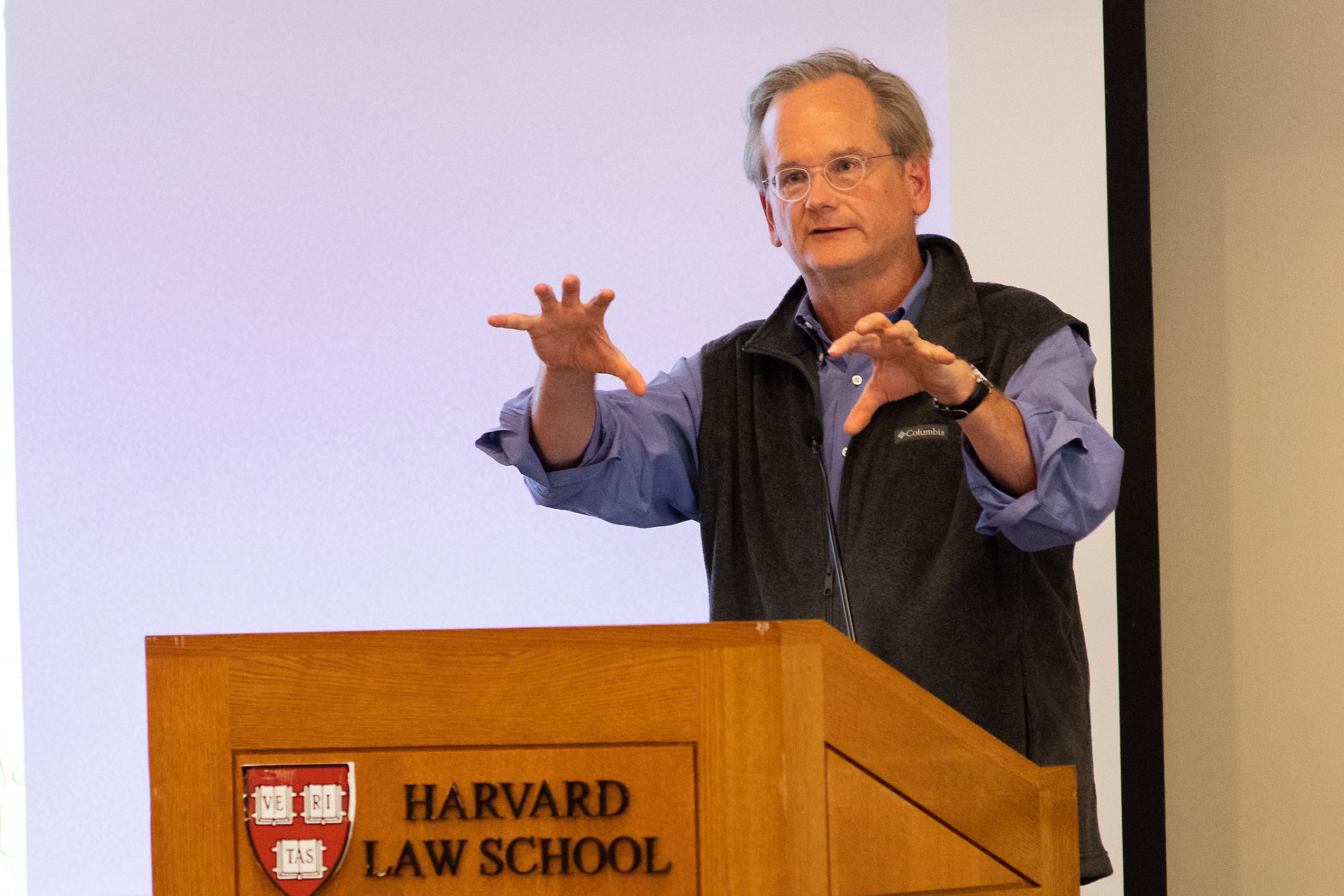In a lively and provocative talk at Harvard Law School on Sept. 25, Lawrence Lessig, the Roy L. Furman Professor of Law and Leadership at HLS, delved into his theory of constitutional law, which he explores in his most recent book “Fidelity and Constraint: How the Supreme Court has Read the American Constitution.”
American constitutional practice, Lessig told the audience, has involved two kinds of fidelities for the Supreme Court. The traditional one is a fidelity to meaning, which involves “figuring out what the words of the Constitution mean and how they should be carried into effect.” But a second fidelity, which is also critical to reckon with, is a fidelity to the Court’s role.
“I think we need to think about the history of constitutional law by thinking of these two things together,” Lessig said. Sometimes they work against each other. Sometimes they complement each other, he added. “But we should think about fidelity to meaning as subject to fidelity to role.”
Lessig described justices interpreting the meaning of the Constitution over time as a kind of “translation,” which involves an effort to accommodate, or “neutralize” the changes in context—as much as possible—in order to keep meaning alive.
Through discussion of key Supreme Court decisions, Lessig argued that throughout constitutional history, the Court has strived to preserve the values of liberty and equality as the world has changed. The practice of constitutionalism has stood above partisanship in the past, he warned, but it will only continue to do so, if the Court is not perceived as political.
Despite worries about the Court’s future, Lessig’s concluded with these thoughts: “If we build an understanding in popular culture of what the Constitution needs to be, then the Court will eventually come to it, despite the text and regardless of the political predilections of those justices individually.”
While “Fidelity and Consent” focused on constitutional law theory, Lessig addresses “institutional corruption—relationships which, while legal, weaken public trust in an institution—especially as that affects democracy, in a forthcoming book “They Don’t Represent Us: Reclaiming Our Democracy” (due out in November). It is a subject he has covered in two recent books: “America, Compromised” (2018) and “Republic, Lost: How Money Corrupts Our Congress—and a Plan to Stop It” (2015).
For much of his earlier career, Lessig focused on law and technology, especially as it affects copyright. He founded the Center for Internet and Society, is a founding board member of Creative Commons, and the author of “Code and Other Laws of Cyberspace,” “Free Culture,” and “Remix.”
